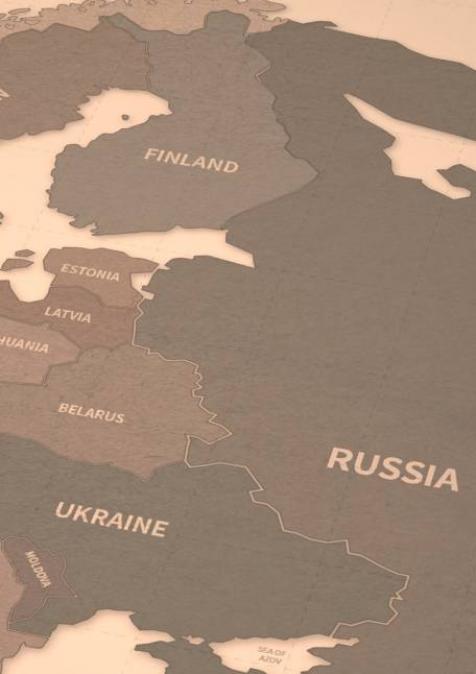John Sawers, former Chief of the Secret Intelligence Service (MI6), shares his insights on how security threats have evolved with the rise of digital technologies and social media. In this interview, he offers a compelling exploration of the shift from traditional methods to contemporary security challenges. Sawers examines how intelligence approaches have adapted to address new threats, including the influence of social media on democratic processes and the evolving global geopolitical landscape. The discussion provides An insightful analysis of the current dynamics in intelligence work and highlights the critical issues facing intelligence services in an increasingly interconnected and digital world.
RELATED CONTENT
-
 AuthorsAugust 11, 2022On these islands, writers and poets, and painters discovered unspoiled paradise, including promiscuous adolescent girls, which Paul Gauguin captured on canvass, his work admired by global art collectors until the French icon was accused of pedophilia- a century late, the beauties on the tableau seem to the self-appointed, global morality brigades to be children, or, who knows, young ladies suffering anorexia. The islands of the South Pacific, or Pacific in general, seemingly lost in ...
AuthorsAugust 11, 2022On these islands, writers and poets, and painters discovered unspoiled paradise, including promiscuous adolescent girls, which Paul Gauguin captured on canvass, his work admired by global art collectors until the French icon was accused of pedophilia- a century late, the beauties on the tableau seem to the self-appointed, global morality brigades to be children, or, who knows, young ladies suffering anorexia. The islands of the South Pacific, or Pacific in general, seemingly lost in ... -
AuthorsAugust 11, 2022Le rôle de la Cedeao (Communauté économique des États de l’Afrique de l’Ouest) dans la gestion des conflits ayant eu lieu à la fin du 20ème siècle et au début du 21ème siècle revêt une importance capitale. Dès sa création, l’organisation régionale représentait le symbole de l’avancement démocratique dans ses pays membres mais elle doit aujourd’hui faire face à un recul en termes de gouvernance démocratique et d’influence. Elle s’est imposée comme étant la plus av ...
-
AuthorsAugust 9, 2022Communities in northern Côte d’Ivoire report an ongoing pattern of questioning, ethnically- motivated arrests, and abuse, in contrast to the good relationships with local forces and police they had until two years ago*. In one case, the national army arrested a number of men, beat them, and held them for up to two months**. In response to extremist attacks, Côte d’Ivoire has increased the military presence in the north, creating a special forces’ base and sending more military per ...
-
AuthorsAugust 5, 2022Le conflit russo-ukrainien fragilise la sécurité alimentaire d'un grand nombre de pays africains, la Russie et l'Ukraine étant deux acteurs majeurs du marché agricole mondial, particulièrement celui du blé. C'est pourquoi, l'approvisionnement en blé du continent est au premier rang concerné par ce conflit qui perdure, dont le premier enseignement concerne le risque de non approvisionnement, en blé russe et ukrainien, des pays qui en sont le plus dépendants. Cette étude montre qu'il ...
-
 AuthorsAugust 3, 2022The timing was perfect for analyzing the “African Security in times of uncertainties”. The Rabat-based “Policy Center For The New South” programmed its 6th “African Peace d Security Annual Conference” (APSACO) on July 20/21 to focus on the historic challenge of our time-the world, Africa in particular, struggling to find stability while war s waged in Central Europe, and 25 million tons of wheat and fertilizers needed to feed the starving population, millions on the Afri ...
AuthorsAugust 3, 2022The timing was perfect for analyzing the “African Security in times of uncertainties”. The Rabat-based “Policy Center For The New South” programmed its 6th “African Peace d Security Annual Conference” (APSACO) on July 20/21 to focus on the historic challenge of our time-the world, Africa in particular, struggling to find stability while war s waged in Central Europe, and 25 million tons of wheat and fertilizers needed to feed the starving population, millions on the Afri ... -
Helmut Sorge, Rama YadeJuly 22, 2022L'ancienne secrétaire d'État chargée des Affaires étrangères et des Droits de l'homme, Rama Yade, met le point sur la position de l’Europe face aux difficultés de l’Afrique en temps d’inc ...
-
 AuthorsJuly 22, 2022“February 24, 2022,” noted Robert Pszczel in « Nato Review”(July 7, 2022),”is likely to engrave itself on the history template of the contemporary world.”Pszczel, a Senior fellow at the Polanski Foundation, Warsaw, and former Polish diplomat serving as director of the NATO information office in Moscow for half a decade, judged Russia’s unprovoked, unjustified invasion of Ukraine is not only a “manifestation of a huge security danger that has shatte ...
AuthorsJuly 22, 2022“February 24, 2022,” noted Robert Pszczel in « Nato Review”(July 7, 2022),”is likely to engrave itself on the history template of the contemporary world.”Pszczel, a Senior fellow at the Polanski Foundation, Warsaw, and former Polish diplomat serving as director of the NATO information office in Moscow for half a decade, judged Russia’s unprovoked, unjustified invasion of Ukraine is not only a “manifestation of a huge security danger that has shatte ... -
July 21, 20222021 was a year of global geopolitical disruption and geo-economic upheaval. As events gather momentum, the world enters a period of geopolitical and geo-economic transition; the end of one historical cycle foreshadowing the uncertain prospects of a new one. We are henceforth, in presen...
-
July 21, 2022كانت سنة 2021 سنة اضطراب جيو-سياسي وانقلاب جيو-اقتصادي عالميين. ومع تزايد زخم الأحداث، دخل العالم فترة تحول جيو-سياسي وجيو-اقتصادي تعلن نهاية دورة تاريخية وتُنبِّؤ بآفاق غير مؤكدة لدورة جديدة. وعليه، فإننا من الآن فصاعداً أمام تغير عالمي حقيقي ينطوي على نقاط ضغط متعددة وقوىً دافعة جيو-س...
-
July 21, 2022L'année 2021 a été le théâtre de perturbations géopolitiques et de troubles géoéconomiques à l'échelle mondiale. À mesure que les événements s'accélèrent, nous entrons dans une période de transition géopolitique et géoéconomique ; la fin d'un cycle historique laissant présager les persp...






